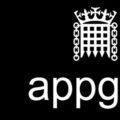
On the eve of the Law Commission’s long-awaited proposals to reform the £2.5 billion enfranchisement business – where leaseholders extend leases or buy their freeholds – LKP trustee Dean Buckner has told the BBC marriage value should not exist.
Marriage value is the supposed increase in value of a property when the freehold is added to the lease: it is relevant in the calculations of extending leases of less than 80 years.

Dr Buckner, a former Bank of England regulator and trustee of the Leasehold Knowledge Partnership, tells the BBC:
“You are asking someone to pay someone else for something they already own.”
Dean Buckner
If the leaseholder has already paid for the extension, there should not be any compensation for the supposed additional “profit”.
Dr Buckner objects to the payment since the leaseholder has already paid for the extension. To consider it a profit is specious, he says, and he points out that it doesn’t exist in deals outside the property world.
The BBC report includes the case of Des Kinsella, a North London leaseholder facing a £42,00 bill to extend his lease. Almost a third of the sum is marriage value.
Every year there are around 100,000 lease extensions and about a fifth of them involve calculations for marriage value.

For Mr Kinsella, part of the expense is down to the fact that the freehold owner thinks the flat, in Ilford, east London, which he bought in 2014 for £165,000, will be worth £265,000 when an extra 90 years are added.
Much of that gain will be down to the extra years themselves – a new buyer will pay more for a flat with about 150 years to go than one with only 60, like Mr Kinsella’s. But the freeholder thinks £25,000 of it will be a profit it should share in.
Mr Kinsella says it’s very hard to find a similar property nearby that will sell for even close to that estimate, even with a share of the freehold.
He tells the BBC he is realistic about wanting to pay what is owed, but that a £25,000 gain in value – half of which he will be obliged to pay to the freeholder – isn’t a fair valuation.
If freeholder and leaseholder can’t agree, valuations are decided by a tribunal.
A request for comment by the BBC from Mr Kinsella’s freeholder, Fable Estates, received no response.





 Campaigner Katie Kendrick gets Rightmove to include lease details on sales listings
Campaigner Katie Kendrick gets Rightmove to include lease details on sales listings






















The flat was sold in 2014 with 65 years on the lease and the price paid for the flat reflected the cost of extending it . The formula requires the lessee to pay 50% share of the marriage value. Leaving aside whether that is equitable the point is the flats value reflected that formula.
The lessee now wants marraige value removed so on the one hand using the argument about marriage value to push down the price on acqusition but when it comes to extend the lease cites that marriage value as unfair and should be abolished.
Again if the costs of the lease extenstion were understood prior to purchase and the financial burden of the rent appreciated before signing up then much of the perceived unfairness would lift
If anything the formula for calculating what a lease extension should cost is too tipped in the lessees favour as interest rates as high as 5% and 6% are used to work out the compensation payable for the lease to be compulsorily extended. We haven’t had rates of return this high for fifteen years or so. It is not right that the particular lessee of the moment exercising the rights under the Act enjoys the benefit of a computation done at such high deemed interest rates and the time is ripe for this issue to be addressed so that the calculation is fair to both parties.
When Sportelli was decided the rate of 5% was costed off a risk free rate of 2.5% that was back in 2007
Since then the risk free rate used to compute the Ogden rate used in personal injury settlements case crashed from 2.5% to MINUS 0.7%
Accordingly a significant downward adjustment in the Reversionary rate and capitalisation could be argued
That’s part of the problem. The lease extension process is never fully explained if at all. Leaseholders are happy with this arrangement as lessees simply stumble into large bills blindly.
It is a small flat in Ilford, not Downton Abbey
Where the flat is part of a residential leasehold development and freehold title was sold to a freehold speculator in criminal breach of s4 of part 1 of the LTA 1987 (as amended by the Housing Act 1996) – that is -section 5 (or following criminal sale-buyer s3A) notices were not issued providing the majority qualifying leaseholders with right of first refusal (RFR), the majority leaseholders continue to hold the right to purchase the freehold on like terms to the original disposal. And for the avoidance of doubt, continue to do so (without time limit) until a s3A notice is finally issued by the buyer (or any subsequent buyer)
This criminal trade has been going on for many years, and the properties so affected have usually been those nearing 80 yrs or already going under 80 yrs remaining on the lease. = with disposals taking place for what can only be described as a relative “peppercorn”. There are many reasons the original freeholder can wish to offload the title (usually the state of the buildings -built in 60/70s- with long term remedial issues) and to do so quickly as part of a portfolio of like developments. These particular sales do not take place at auctions – they are done behind closed doors and far from prying eyes.
Thus an unscrupulous buyer illegally purchases the freehold title to a residential development of say 100 flats at c. £100,000 and, as the length of time remaining declines under 80 year on year, aims to extend individual leases at an ever increasing and extortionate cost thereafter –
Eg: Flat built 1970 =
99yr lease sold at full market value to leaseholder (and subsequent leaseholders). RFR ignored and
freehold title illegally sold in 2000 for relative peppercorn – providing extortionate scam extension business thereafter.
Imperative Law Commission , CMA, and Gov address this existing scam and not provide any further “loopholes”.
LKP: Happy New Year – love your new look – but please put a “Post Comment” up top on toolbar -so the IT dummies like me can navigate more easily.
Why are we still talking about this? Leasehold needs to be abolished not reformed – like the rest of the world! It is a gigantic scam, a legacy from Feudal land ownership, a misselling scandal. None of these future costs are ever indicated at the point of purchase and are not in the “contract” and at no point does any professional tell you you are not a homeowner but a tenant and paying rent. no leasehold flat or house should ever be “for sale” – it isn’t and the adverts are scandalous lies. They know they are but there is a collusion of professionals to keep that fact out of sight. And to even have a hope of understanding what you are signing up to, you have to understand Lease Law, which of course is ridiculous. People are being forced to pay twice for the home they thought they purchased, and indeed “purchased” at the market value of freeholds.
The other scam and scandal is that there is a hidden market in ownership which the Leaseholder is not privy to – his home could change hands many times but he wouldn’t know, and the investor sale price is not even available to the Leaseholder.